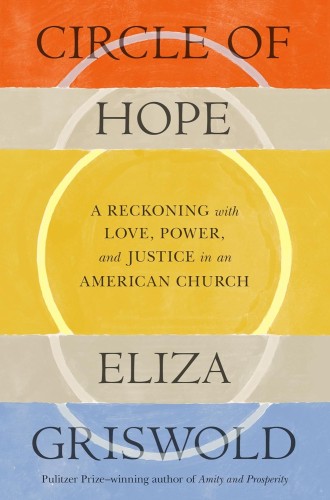Inside a church’s implosion
Eliza Griswold profiles a progressive evangelical church that sought to do things differently but fell prey to the usual problems.

Circle of Hope
A Reckoning with Love, Power, and Justice in an American Church
With all the attention on megachurches and the alliance of White evangelicals with the Republican Party, it was time someone examined the so-called religious left, a loose—very loose—network of progressive congregations united not so much by institutional bonds as by biblically informed perspectives on everything from poverty to sexual identity. Circle of Hope, a progressive evangelical church in greater Philadelphia, would provide a perspective on the movement, and if we were to engage a journalist to write such a book, we could do no better that Eliza Griswold, Pulitzer Prize–winning author of Amity and Prosperity and daughter of the late Frank Griswold, the irenic presiding bishop of the Episcopal Church from 1998 to 2006.
Griswold invokes her father in staking out the project. She remembers finding him in tears after long days of trying to reconcile competing factions in the Episcopal Church following the consecration of V. Gene Robinson, the openly gay bishop of New Hampshire. Ecclesiastical harmony is elusive, as the author finds at Circle of Hope.
Officially part of the Brethren in Christ, a small Anabaptist denomination, Circle of Hope was founded in 1996 by Rod and Gwen White, Jesus Movement émigrés from Southern California. They envisioned Circle of Hope as a rebellion “against all the coercion going on in the name of Jesus.” This church aspired, the author writes, “not only to reclaim the moral heart of evangelicalism but also to serve as Christianity’s last, best shot at remaining relevant.”





